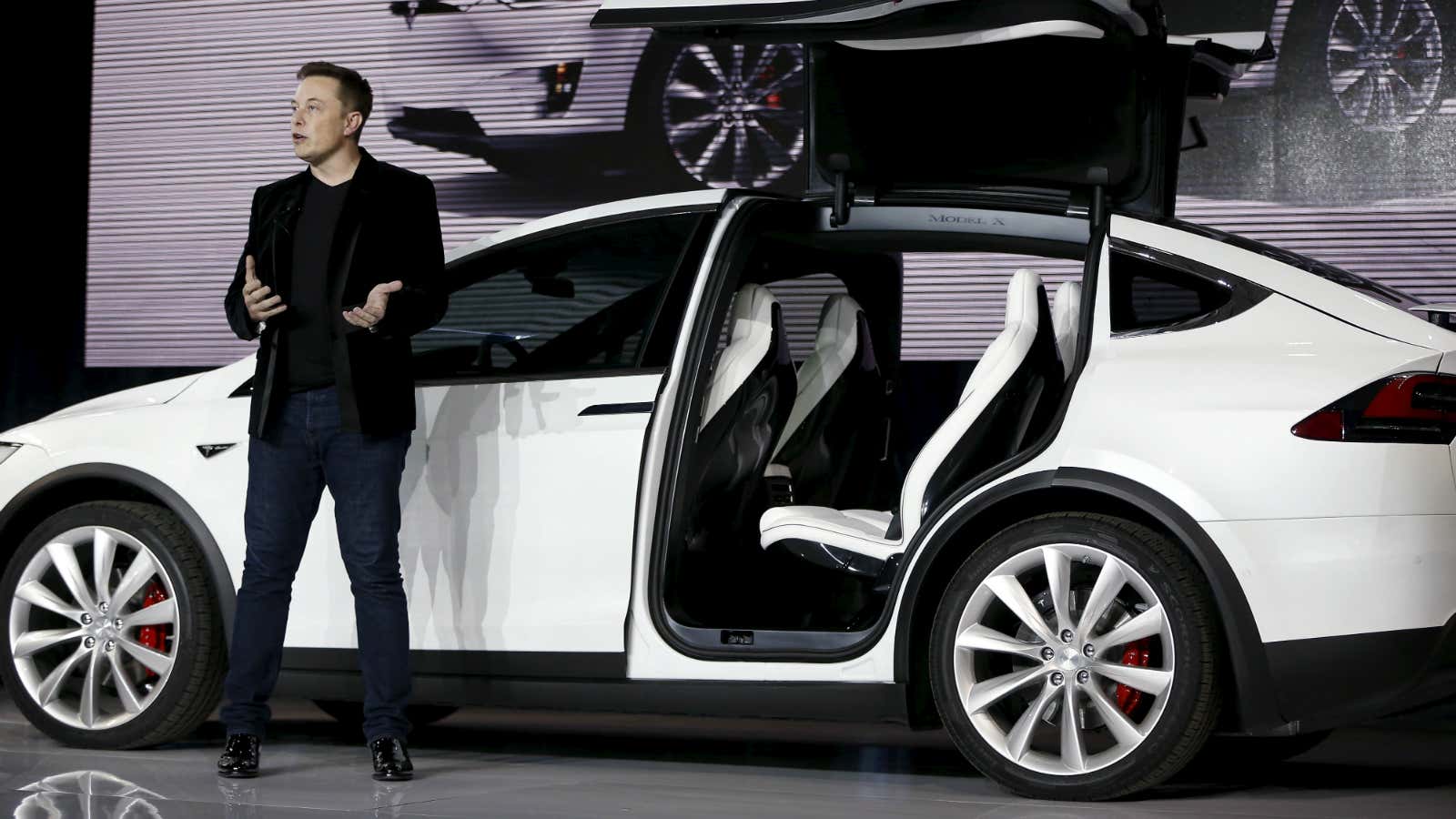In September, when Indian prime minister Narendra Modi visited Silicon Valley, he took time off to visit the San Francisco factory of Tesla Motors—the maker of iconic battery-operated cars such as the Tesla S.
The frenzy over his visit had prompted many to suggest that Tesla could soon set up a car manufacturing facility in India, following in the footsteps of many other companies that have followed Modi’s call to invest and establish operations in the country. Instead, Tesla founder Elon Musk chose China for an auto factory.
But in India, Musk has indicated that Tesla might establish a “gigafactory” to manufacture lithium-ion batteries.
Tesla is currently setting up its first such factory in the US state of Nevada, expected to be completed by 2017.
In India, Tesla’s mass-producing lithium-ion batteries—known for their ability to recharge and store energy—would bring down their cost and increase mass adoption. That could mesh nicely with India’s move towards renewable sources of energy, especially solar power. Modi has set an ambitious target of India producing 100 gigawatts of solar power by 2022—and of attracting investments worth $100 billion into the sector over the next seven years.
Tesla is yet to respond to an emailed questionnaire from Quartz.
Meanwhile, Musk and Tesla aren’t planning to sell cars in India anytime soon, mostly due to the nation’s tough taxation policies.
“Auto import duties are prohibitively high. Hoping for a special category for EVs [electric vehicles]. Most of our discussion [with Modi] was on batteries,” Musk said in another tweet.
